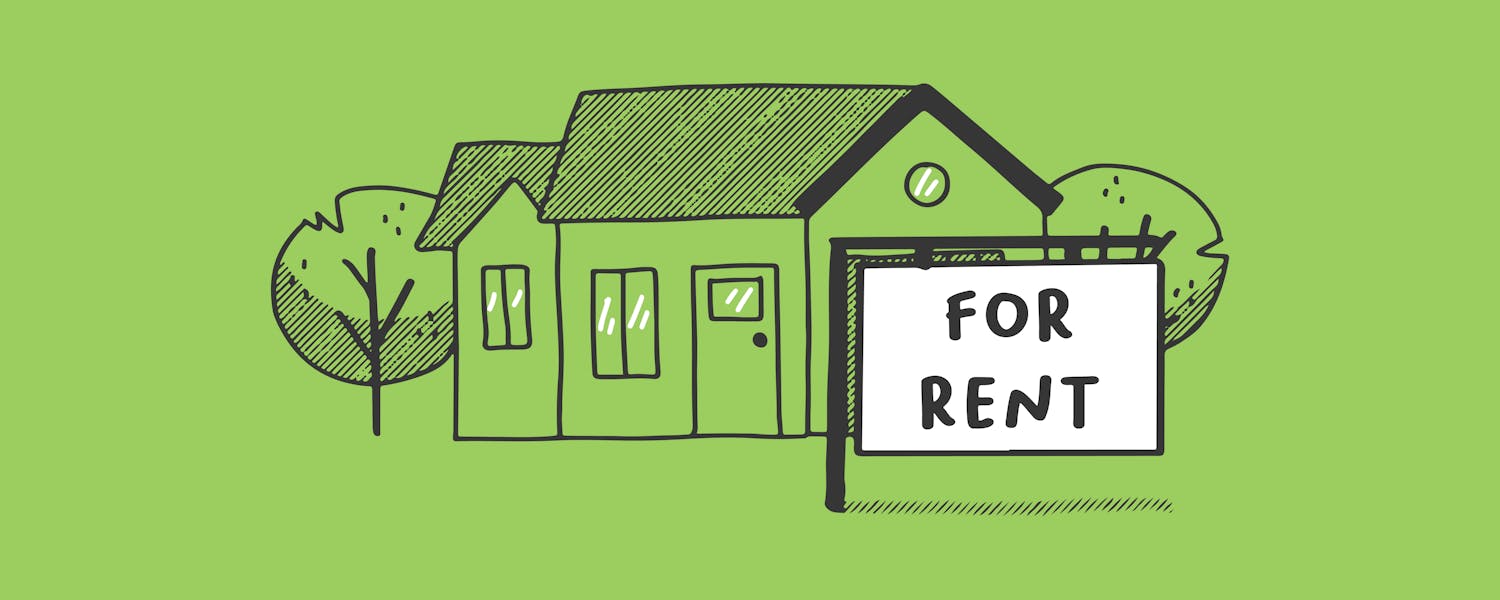What to do Before Renting a Place to Live
Before renting a house, it’s important to understand what to consider.
Even though you aren’t purchasing it, you are still legally liable to pay the rent and occupy the property as agreed in the lease.
Before signing on the dotted line, here’s what you should consider.
Steps to Finding the Best Place to Rent
Finding the best place to rent involves more than finding a fancy apartment or house.
You should consider many factors, including where you want to live, how much you can afford, and the lease terms.
Renting an apartment isn’t the only possibility when you aren’t ready to buy.
If you want to consider a rent-to-buy transaction, you can have a portion of your rent put toward the down payment when you decide to buy the property from the landlord.
Of course, you can always just rent and end the lease when it expires, moving to another house of your choice.
Envato/drazenphoto
Determine Where You Want to Live
The first step is to determine where you want to live. You should consider a location close to your job, family, and friends.
Also, consider what you want to be near, such as specific amenities, including local shopping, churches, and medical facilities.
As you consider the amenities you need in the home, consider how much space you need for bedrooms, bathrooms, and other tasks.
For example, if anyone works from home or attends online school, you may need a separate place for these activities.
Also, if you have pets, you'll need a pet-friendly home. Be careful; some landlords charge extra if you have pets living with you, so always look at the big picture.
Also, when deciding where you want to live, decide if this is long-term or if you'll move shortly.
If this is where you want to settle, get to know the area, especially if you're considering renting a house you may purchase.
Envato/rawf8
Understand your Budget and What you can Afford
We like to follow the 50/30/20 budget, which states you should spend a maximum of 50% of your budget on your needs, 30% on wants, and 20% on savings or debt payoff.
Within the 50% needs category, you should limit your housing payments to 25% - 30 % of your income.
You'll also need money for fees, including:
- Security deposit
- Cleaning fees
- Renter’s insurance
- Utilities
- Parking
- Other amenities
Remember that your security deposit will likely equal a month's rent plus a pet deposit (if applicable) and parking fees.
Do your Research
Envato/dekddui1405
Get to know the area you’re moving to, not just the house you want to rent. This is especially important if you’re thinking about a rent-to-buy arrangement.
Make sure the area is where you want to live and that it can handle your needs for however long you plan to stay there.
Look at things like the crime rate, school ratings, and resale value. Also, research taxes in the area and how often they increase. If you decide to buy a house there, you'll eventually pay real estate taxes, which are a big concern for most homeowners.
After doing your research, weigh the pros and cons of renting vs. buying a house.
Negotiate the Lease Terms
Lease terms are negotiable, like a sales price when buying a house. The landlord has the final say whether they want to accept your proposed terms, but it never hurts to ask.
Envato/Prostock-studio
Some areas to consider negotiating include:
- Security deposit – If you feel the security deposit the landlord asks for is too high, negotiate a lower deposit. Give your landlord reasons why you are a good risk, such as having a good rental history to ensure you won’t bail on the lease early.
- Rental period – If you want a different period than an annual lease, request it. Some landlords may be flexible, especially if they don't want the house vacant any longer.
- Terms – Always negotiate the terms, whether they have to do with the time you have to move out of the property, the notice you must provide to end the lease, or what’s required if you have a pet in the property.
- Utilities – Make sure the lease clearly states who is responsible for the utility payments. If you are responsible for any of them, ensure they are clearly stated in the agreement.
Read the Lease Closely
Envato/BrianAJackson
A lease is a legal agreement, so be sure to read it carefully.
If you don't understand the terms, consider contacting a real estate attorney to help you.
Pay close attention to the landlord's rights as well as your own.
Don't sign a lease if you feel uncomfortable with its terms.
If you don't follow the terms, the landlord can take legal action against you.
Inspect the Apartment and Lease Before Signing
Like any real estate, always inspect the property before signing any agreements. This is true of an apartment or house.
Take pictures and notes of anything wrong with the property before moving in and ask the landlord how he/she would like to take care of it.
This ensures you aren't held responsible for something you didn't do.
Final Thoughts
Envato/formatoriginal
Renting is a big decision, almost as big as buying a house. When you rent, you are legally obligated to the owner and must follow the lease terms.
Before signing a lease, make sure you understand and agree with it.
Also, ensure the house is something you can live in at least for the duration of the lease and that you understand any consequences of ending the lease early.





